

It is a long time since I did one of these, but Worldcon has changed a lot in that time. There are many new people becoming part of the Worldcon community, and inevitably they don’t have much idea of how Worldcon works. Worldcons definitely do get things wrong, sometimes disastrously so, but if we want them to get better we need practical solutions that stand a chance of working. So I figured I should do a bit of explaining. Hopefully this will help.
Also, as I have been out of the loop for some time, I may have got stuff wrong. If I have, please tell me.
The Venue
Dublin is a lovely city, and the Convention Centre Dublin (CCD) is a beautiful building with gorgeous views over the city from the escalators (unless you have a phobia about heights, which people I know do—thank goodness for the elevators). A great setting can make an uncomfortable experience feel a lot better. Nevertheless, Dublin was right on the edge of the number of people it could handle, which is why they took the unusual decision to close membership purchase prior to the convention.
When they were bidding I heard people complaining that the convention would be a disaster because the venue only held 2000 people. That’s nonsense. Sharon Sbarsky told me that she and some other fans had been on a bus tour of the city after the 2014 Eurocon and the tour guide had quoted this figure. Perhaps that’s where the story came from.
The actual theoretical capacity is somewhere between 5000 and 6000, which is a typical Worldcon size. But close to capacity it becomes difficult to manage. Helsinki, which had similar capacity issues, had the option of simply renting more space in their huge convention centre. Dublin didn’t, hence the decision to take space in The Point, a newly built facility one stop down the Luas line from the convention centre.
Having two venues that are 10-15 minutes apart creates scheduling problems. The convention did a smart thing in staggering the schedules. Program items in the CCD started on the hour, and those in The Point started on the half hour. That way you had time to get from, say, an 11:00 item in the CCD (finishing at 11:50) to a 12:30 item in The Point. Even so, I think a lot of people took a decision to stay at one venue or the other. No matter how well you prepare, that’s inevitable.
Even with the split sites, queuing for program items became a problem. It took several days before the CCD had something that worked. I understand that a lot of volunteer time was spent on corralling and entertaining the crowds. Huge thanks are due to the people who did that difficult job.
The CCD staff were less good at crowd control. Some of them were lovely. Some were unnecessarily officious. The same was true of staff at The Point. At one point I tried to leave my jacket and (very heavy) rucksack at the cloakroom in the CCD. I was told that it was full, despite the fact that there was very obviously lots of room; and loads of unused coat hangers. I’m afraid I had a sobbing fit. It was a Very Heavy rucksack. Thankfully they relented, but that just proved the point that there was plenty of room. On the other hand, when I arrived with two heavy suitcases on the Monday, a CCD security guard helped me carry them into the building, despite the fact that I didn’t have my badge on at the time.
I found the Luas very simple to use and very frequent. Fortunately, my AirBnB was fairly close to a Luas stop. However, the Dublin experience reminded me of how essential it is for people doing a lot of work on the convention to have a convenient nearby hotel room. I had to carry a laptop around with me for 3 of the 5 days; and had my suitcases with me for a 4th because AirBnBs don’t have luggage storage facilities. Kevin had an even worse experience, having to be at the Business Meeting with a pile of equipment for 9:00am on 4 of the 5 days.
The other minor complaint that I have about the CCD is that there was a distinct lack of public seating space. That again seems to have been a building capacity issue, in that I could not see where you could have put more.
Martin’s
The one big area of public seating was the con bar, Martin’s. This was named after Martin Hoare, a British fan who died suddenly a couple of weeks before the convention. Martin was one of my oldest friends in fandom, and indeed the person who encouraged me to start attending conventions. I still can’t quite believe he’s gone. Naming the convention bar after him was exactly the sort of tribute he would have wanted.
Registration
My first and primary experience of queuing chaos was on Thursday when I went to register. I was told that I had to enter the building by a side door, but when I got there it was not obvious were the registration queue was. It looked like there were no queues. My apologies if anyone thought I was queue jumping.
Eventually I found out where to stand, and everything proceeded very smoothly. I think I spent more time trying to find the queue than actually queuing.
The best thing about Registration was the badges. Names were clearly visible, and there was a little round space for a pronoun sticker. Those were available on tables around the foyer, and the Dublin folks had even thought to provide blank ones for folks who use neo-pronouns. I was very impressed.
Opening Ceremonies
I have to say that Dublin got off to an unimpressive start. Opening Ceremonies had a bunch of problems, including in the part that Kevin and I were responsible for. Thankfully, if you screw up this part of the convention, you have time to fix the issues before the really important stuff.
As with the last couple of years, Kevin and I, with the assistance of Susan de Guardiola, were planning to do live coverage of the Hugo Award ceremony via a text-based system. The one that we had been using, CoverItLive, has gone out of business, so we had to find an alternative. We elected to cover the Retro-Hugo ceremony, which was part of Opening Ceremonies, to give us a chance to get used to the new software. I’m so glad we did.
In Helsinki the issue we had was that no one was expecting us. I spent much of the convention tracking down Josh Beatty, the Hugo Ceremony Director, and negotiating a place for us to sit. An internet connection was no problem. I just had a quiet word with Otto Mäkelä and a connection was provided.
In San José Kevin was in a senior management position and able to secure everything we needed in advance, but in Dublin he wasn’t. Josh, bless him, remembered us and made sure we had a place to sit. In fact, he got us a booth at the back of the auditorium. It was a little cramped, but we had peace and quiet and did not need to worry about people seeing the results of the awards over our shoulders as we were working. However, the only Internet connection we had was the general CCD wifi, and it was painfully slow.
Thankfully we didn’t have many people online during the Retro-Hugo Ceremony, and those that were there were very understanding of the issues we were having. But we absolutely had to get something better for Sunday. More of that later.
Our own problems were matched by those of the ceremony itself. There were mix-ups with the order in which awards were announced, leading to the wrong slides being shown, and at one point the wrong presenter was announced. In addition the envelopes with the winners’ names in them were so tightly sealed that it took a minute or so to break into one. Thankfully the presenters soon took to making a joke of it, and Diane Duane produced a useful Swiss Army Knife. Order slips for the plaques on the trophies had been left in the envelopes, and this further confused the poor presenters. I sent up multiple prayers to the fannish ghods that things would not go so badly on Sunday.
I’m also a little concerned about the tone of the Opening Ceremonies. I know there are not many places to put a Retro-Hugo ceremony, or the Big Heart Award, or the First Fandom Awards (of which there are now several). But the end result is that Opening Ceremonies is almost entirely about old people and dead people. That doesn’t really get the convention off on the right footing. I don’t, as yet, have any solutions, but I think we need to find one.
Program
I missed most of the program because early on I took a policy decision not to go to anything that I wasn’t on panel for. The queues looked bad and there were lots of people at their first Worldcon. I wanted to give them a chance to have the Worldcon experience.
There were, however, plenty of interesting panels, many of which I wanted to see. My panels went well. Only one person said, “I don’t know why I’m on this panel”, and that was because they were a bit overawed by the credentials of the other panellists. They made some very valuable points during the panel.
I heard very few reports of panels going bad. Apparently, the CCD staff were rather heavy-handed with the LGBT meet-up session because it was over-subscribed. I also heard complaints from one panel that a male panellist repeatedly interrupted the women on the panel; and tried to make the whole thing his own personal comedy show. That one I was in a position to do something about. I had a quiet word with someone in programming, and the moderator of the otherwise-all-female panel he was scheduled for that day. As a result, the women on the first panel got an apology from the convention, and the second panel went smoothly. I can’t always make magic happen, but sometimes knowing a lot of people can be very useful.
I think, however, that a few things went awry prior to the convention. My friend Virginia Bergin was told that she wasn’t required for programming, despite being a recent winner of the Tiptree and there being several YA and gender panels scheduled. I understand that other authors were also turned down. And yet a few days before the con I got an email from Programming asking for volunteers to be on a bunch of program items that had insufficient members. That was weird.
One of the big changes since I was last a Worldcon regular is the use of the Grenadine software to schedule programming. This isn’t just a cool tool. I understand that Programming was keeping tabs on sign-ups through Grenadine and using the data to move program items to appropriately-sized rooms each morning. That’s a very useful thing to be able to do. Later in the convention they also got Grenadine to display room capacities, so attendees could make judgements as to what items they stood a chance of getting into. It is nice to see technology being well used.
One thing that was rather annoying was that access to the Green Rooms (one at each venue) was restricted to people with an upcoming panel. I’m assuming that this was due to lack of space, but I could have done with somewhere to sit quietly for a while. I did blag my way into the Green Room at The Point on Saturday because it was empty and all I wanted was a chair.
Dealers’ Room
This was my first Worldcon where I had significant numbers of books to sell. In Helsinki I went through my good friends at Rosebud as I only had Airship Shape & Bristol Fashion to sell. I think we sold 3 or 4. For Dublin I had Juliet McKenna’s Green Man books. One of them is an award finalist, the other was new at the convention, and Juliet is part-Irish. Francesco Verso of Future Fiction very kindly gave me some space on his table. I sold 50 books; and could probably have sold more if I’d had them. I was very pleased.
Francesco also did very well. His new anthology of translations sold out before I could buy one. Twelfth Planet only had 15 books left, which I know because Francesco and I took them to Belfast to sell at TitanCon. Other dealers seemed very happy as well.
There was plenty of room, and what seemed to be a good mix of different types of dealer. There was also a De Lorean parked at the entrance. All in all, it went very well.
Art Show
This was at The Point. If you didn’t head down there to look, you missed a treat. The space it was given was massive, and there was a lot of natural light which is just what an art show needs. Dublin had paid particular attention to artists and had got a lot of good people involved, including Jim FitzPatrick whose work I love. A bunch of UK artists had come over to exhibit, and even John Picacio managed a small entry despite the difficult of shipping art across the Atlantic.
In addition to the main art show, there was also a large Lego exhibition which was very impressive.
I have one small request for future art shows. Could you please have some carboard tubes for sale for the benefit of idiots like me who keep forgetting to bring one?
Masquerade
I missed this. I was just too tired by Saturday night and went back to my apartment to get some sleep. Kevin Roche and Andy Trembley were running it, so it should have gone very smoothly. They told me that they were full, which I think meant 40 entries. I’ve not heard any complaints.
Newsletter
This came out regularly and seemed to have good information in it. Attempts to provide information in Gaelic either didn’t go well, or there was a running joke about them not going well, I couldn’t work out which. It was called The Salmon of Knowledge, which is a smart reference to Irish mythology.
There was also a one-off hoax newsletter called The Trout of Doubt which appeared on Monday afternoon. I thought it was pretty funny.
Business Meeting
Despite having so much business that they had to run into a fourth meeting on Monday, this year’s Business Meeting actually did very little. For detailed reports of what happened, please see Alex Acks, or the videos of the meeting which are now available on the WSFS YouTube channel.
Jesi Lipp presided over the meeting. It was their first time, and I’m delighted to see new people getting involved. Kevin tells me that there are a number of young, keen fans that he’s been working with. This is very good news. The comment in the hoax newsletter about Business Meeting attendees under the age of 50 having to be accompanied by an adult was funny for a good reason.
I’m told that Jesi did very well, but if there’s one thing they messed up on it was the order of the motions (which the BM staff gets to set). You should always try to get the controversial items early on the agenda. That gives the attendees plenty of opportunity to debate something important. If you don’t do that, they will start to debate things that should be non-controversial. So leave the non-controversial stuff to the end when hopefully the smart-asses are tired.
The result of this was that the BM spent an inordinate amount of time debating what should have been a simple change to bring the Constitution into line with GDPR requirements. Instead of it being nodded through, this got aggressively amended and, as I understand it, ended up making us even less GDPR-compliant.
Much of the business before the meeting got referred to committees. I know this is irritating to people who want to see change happen. Unfortunately, people who bring motions before the BM often don’t think them through very well, or discuss them in advance with people they will affect. It is much better to take the time to pass good legislation than to pass bad legislation in a hurry.
The one motion I was concerned about was the proposal to create a Best Translated Novel Hugo. Pretty much everyone I know in the translation business was against this, including Neil Clarke and Francesco Verso. We don’t want translated works to be shoved into a ghetto where there is only one Hugo available. We want them to keep competing, and winning, in the main fiction categories.
I am aware that many people are upset about the level of commitment required to participate in the governance of WSFS. I’m pretty sure that Kevin doesn’t want to be spending 4 mornings of the convention in meetings and 4 afternoons uploading video either. But this is much too big a subject for a con report. We’ll be addressing the issue in more detail in a future issue.
The Hugos – Getting Online
After the problems that we had during Closing Ceremonies, Kevin and I spent quite a bit of time over the next few days trying to ensure that we would have a better internet connection for Sunday night. We got there in the end, but it wasn’t easy.
After it was all over I discovered that part of the problem was split responsibility for IT. The main IT department was under facilities. Those people had access to a much better connection, but they refused to let us use it. (I’m guessing those responsible were Keith Smith and/or James Turner.) Fortunately, there was also an at-con IT group under Logistics, which was run by Rick Kovalcik. Rick knows us well, and so does the head of Logistics, Brian Nisbet. Much to our relief, Rick managed to secure a portable wifi router with a decent connection that we could use for the evening. We are very grateful to him.
This highlights a wider issue with the text-based coverage. It only works because of personal contacts. We got a room because I had made friends with Josh in Helsinki. We got a connection thanks to Otto in Helsinki and Rick in Dublin. If we don’t have those networks, we can’t do the job.
We get into these situations because Worldcons do not value what we do. There is an assumption that, because they have the live video streaming, what we do is not necessary. But the live streaming sometimes fails. There are people who don’t have the necessary bandwidth to watch it. And we provide an additional service in that we give commentary. We had over 450 people online on Sunday. Some of them were in the convention bar watching the streaming on the big screen, which I know because they told me.
Susan in particular has been a huge asset to us. While Kevin and I do the set-up, she goes around the pre-ceremony reception snapping photos of the finalists in their finery. She then does color commentary alongside Kevin’s factual reporting of what’s going on. It makes a huge difference, and it is the only chance most people get to see the unsuccessful finalists because they don’t get to appear on stage.
My job is moderating the chat window. The new software separates chat from the main flow of commentary, which is not ideal but it was the best we could find at the time. We will be looking for alternatives. Susan tells me that some of her friends were trying to participate in the chat but never saw their comments come up. I only deleted two comments: both for making unflattering comments about the physical appearance of finalists. So if comments did go missing that’s another issue with the software that we need to address before next year. Unfortunately there are not many such services, and even fewer that will let you try the software out to see if it does what you need before you have to pay lots of money for an account.
I know I am blowing my own trumpet here, but I think this is a valuable service and I think that future Worldcons should take it seriously. Despite all of the time and effort I have put in over the years, I have never once been recognised as staff, or even as a volunteer, and yet I am doing something that appears on the official Hugo Awards website. If it is me that is the problem I wish someone would tell me and put someone else in place to do the job, because it needs to be done.
The Hugos – The Ceremony
Much to my relief, the main Hugo Ceremony went mostly flawlessly. There were two main issues: the speech-to-text system, and pronunciation of names.
The failure of the speech-to-text system is entirely on the con committee’s senior management, and the one major mistake that they made. They were told beforehand that the cheap system they wanted to use was useless, and they went ahead anyway. A better system has been in use at the Business Meeting for some years. When Jesi Lipp heard that they were being forced to use the cheap system they refused to use it at all because they knew how bad it was. That should have rung alarm bells for the Hugos, though by then it might have been too late to change.
Future Worldcons should take note of this.
Pronunciation of finalist names is also a solved problem. When Neil Gaiman was toastmaster in 2004 he spent much of the pre-ceremony party checking with each finalist. I’m told that John Picacio did the same last year. When I was a presenter I did the same checks for the category I had been assigned. It is part of the job. There may be names that people can’t get right because the language is too unfamiliar, but you should at least make an effort.
The Hugos – Winners
I’m well aware that my tastes and those of the Hugo voters don’t massively overlap. This year I was astonished that I had read 4 of the 6 Novel finalists and 5 of the 6 Novellas. I’m delighted for Martha Wells and Murderbot. I am deeply disappointed for both Cat Valente and Janelle Monáe, but not surprised that neither of them won.
Nicholas Whyte has done an excellent post digging into the numbers. I don’t have much to add to it. Like him I am particularly sad for Dirty Computer, but it is really hard to win BDP: Short with anything other than a TV episode because all of the TV fans will give their preferences to other TV episodes.
I do want to give a mention to a number of friends who appeared on the long lists. I have hopes that we will see them as finalists one day. Emma Newman’s Before Mars made the Novel list and Planetfall was listed in Series. There were several great novellas that didn’t make the final ballot. GV Anderson’s “Waterbirds” did very well in Short Story. Anna Smith Spark was longlisted for the Campbell.
I understand that special congratulations are due to Simone Heller for being the first German-born person to be a Hugo finalist.
The Campbell Thing
One of the two major talking points of the convention was Jeannette Ng’s acceptance speech for the Campbell. Much outrage has been expressed by right-wing parts of the community, but given that Michael Moorcock described Campbell as a fascist back in 1971 I don’t think anyone can complain much about Jeannette doing so now. He was, by most accounts, a particularly nasty piece of work.
However, as I have pointed out elsewhere, the Campbell Award is not owned by WSFS. If we want it changed, the correct thing to do is to write to the management of Dell Magazines (who publish Asimov’s and Analog) and ask them to change it. Presumably some of you did so, because they have already announced that the name of the award will be changed. That should be an end to this issue, but I understand that a bunch of clowns are trying to insist that, because the award is called the Campbell in the WSFS Constitution, Dell has no right to change it; or if they do change it then the award must be excluded from the Hugos. The Business Meeting in Wellington could get quite interesting.
After the Hugos
The other major talking point of the convention was the chaos surrounding the Hugo Losers’ Party. Again I have written about this elsewhere. I don’t have much to add. I had hoped to get to talk to George or Parris at TitanCon, but Parris is recovering from surgery and George wasn’t around much.
To recap, it is only recently that George took over running the Loser’s Party. He did so in order to give awards to all of the people who had missed out because of the Puppies. Before that the party was a damp squib that no one who knew how bad it was would mind missing. Worldcon runners were doubtless delighted that George took the thing off their hands. However, the main lesson from this is that letting other people run your events is a hostage to fortune because they might do so badly and then you will be blamed for the disaster.
Of course, going back to having the Losers’ Party run by the upcoming Worldcon will go back to it being a poorly resourced event in a hotel room that is much too small. It will also mean going back to having entry controlled by SMOFs who may have an axe to grind. I think the best thing that Worldcon can do is allow George to carry on running the party but not take any part in organising or promoting it. It can become George Martin’s After-the-Hugos Party. Those of us who are not invited or, in the case of Kevin and I, can’t go because we have to update the Hugos website, can channel Groucho Marx and be happy we are not part of that club.
One thing I will say is that I don’t think there was anything personal in what happened. Some people were unlucky with timing, and the party organisers messed up on how many people they could take. Mary Robinette got in, not because of who she was, but because she was very late and lots of people had left. I say this because I have been deliberately and personally disrespected as a Hugo finalist at least twice. On the other hand, I just had people be rude to me (which I countered by winning the Hugo in both cases). I totally understand that having to stand outside in the rain in your party gear is a whole different level of pain.
I should note that Mary Robinette was very late because she stuck around at the CCG talking to fans and showing off her trophy rather than disappearing off to the swank party. I remember that she did this in London in 2014 as well. This, people, is how you build your legion of fans.
By the way, both the pre-ceremony reception and the Losers’ Party are being affected by the burgeoning number of Hugo categories. Both are hugely expensive to run, and both require a very large space that will be difficult for the convention to find. I think most people will agree that we don’t want the Hugos to be sponsored. If you think you have seen drama, I’m assured it was nothing compared to 1987 when the convention committee allowed the Scientologists to sponsor the Hugos. But if they are not sponsored then we can’t have flashy parties for the finalists, except by charging people more for memberships which would be bad.
The Verdict
So how did it go? Pretty much everyone I spoke to said that they had a great time in Dublin. I’m sure that there will have been individual issues, but the overall impression is of a job well done.
I certainly had a good time, despite not seeing much of the event and being exhausted for most of the time. My biggest complaint, apart from the weight I had to carry around, is that I didn’t get to see many of the people I knew were there, and wanted to see, but never ran across. All things considered, that is a very minor complaint.
So well done James, and Irish fandom in general. You have done us proud.
Where Next?
Next year Worldcon will be in Wellington, New Zealand. It will be much smaller, because many people will not be able to afford to go; or will have concerns about the environmental cost of flying. I have been saving up QANTAS points for 10 years in the expectation of needing to go to Wellington, so I’m OK on the cost and very much hope to be there.
Washington DC has won the right to stage the 2021 Worldcon. I am unlikely to be there because I see no possibility of my being allowed to travel to the USA ever again. Other people have different concerns about US travel. We have had a couple of great European Worldcons, and there is a Glasgow bid for 2024 that stands an excellent chance of winning, but the USA is still the country with the most experienced con-runners and the best facilities. It is going to host a lot more Worldcons in future because there will be no viable alternatives. It is my view that if we want to maintain the international nature of the convention we must find more ways for people to participate online. And that’s something I plan to write about in the next issue.

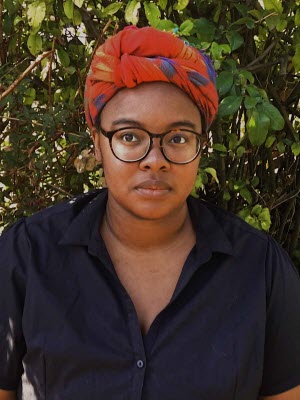 This interview with Rivers Solomon dates from August 2018. They were just heading off to San José where they were a finalist for the Astounding Award (then the Campbell). The interview is mainly about Solomon’s projected work on a book based on the clipping song, “The Deep”, which had been a Hugo finalist in Helsinki.
This interview with Rivers Solomon dates from August 2018. They were just heading off to San José where they were a finalist for the Astounding Award (then the Campbell). The interview is mainly about Solomon’s projected work on a book based on the clipping song, “The Deep”, which had been a Hugo finalist in Helsinki.
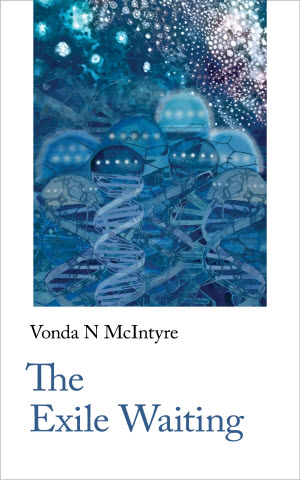 One of the themes of Analee Newitz’s
One of the themes of Analee Newitz’s 

 This interview dates from August 2014, when the anthology, Accessing the Future was due out. I have reproduced it here because the themes of disability in science fiction are very relevant to Vonda McIntyre’s
This interview dates from August 2014, when the anthology, Accessing the Future was due out. I have reproduced it here because the themes of disability in science fiction are very relevant to Vonda McIntyre’s 

 I have very much enjoyed Tim Pratt’s Books of the Axiom series. You can find my thoughts on The Wrong Stars and The Dreaming Stars
I have very much enjoyed Tim Pratt’s Books of the Axiom series. You can find my thoughts on The Wrong Stars and The Dreaming Stars 

 So, stories about the Green Man and dryads are a thing now? Cool!
So, stories about the Green Man and dryads are a thing now? Cool!


 The people who complain that science fiction has been taken over by Social Justice Warriors often say that there is a lack of fun adventure stories. Obviously those people have not been reading Tim Pratt.
The people who complain that science fiction has been taken over by Social Justice Warriors often say that there is a lack of fun adventure stories. Obviously those people have not been reading Tim Pratt.

 This is the October 2019 issue of Salon Futura. Here are the contents.
This is the October 2019 issue of Salon Futura. Here are the contents. Editorial – October 2019
Editorial – October 2019 The Warrior Moon
The Warrior Moon Interview – Ellen Datlow
Interview – Ellen Datlow FranKissStein
FranKissStein The Pleasant Profession of Robert A Heinlein
The Pleasant Profession of Robert A Heinlein Feeling Badgered?
Feeling Badgered? Alice Payne Arrives
Alice Payne Arrives Shadows of Athens
Shadows of Athens David Mogo, Godhunter
David Mogo, Godhunter Brightfall
Brightfall FantasyCon 2019
FantasyCon 2019


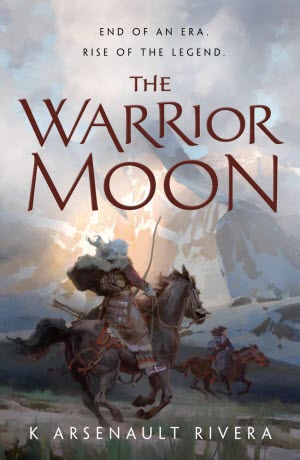 This book is the third and final instalment in what has become one of my favourite fantasy series of recent times. It began with The Tiger’s Daughter and continued in The Phoenix Empress. In these books K Arsenault Rivera has constructed a fascinating fantasy world based loosely on Japanese, Chinese and Mongolian cultures. She has also given us the most adorable pair of lesbian demon hunters in literature. Barsalai Shefali and Minami Shizuka are beautifully drawn, far from perfect, and passionately in love. As the series has been neatly wrapped up I don’t see how we’ll get more stories about them, and this makes me rather sad.
This book is the third and final instalment in what has become one of my favourite fantasy series of recent times. It began with The Tiger’s Daughter and continued in The Phoenix Empress. In these books K Arsenault Rivera has constructed a fascinating fantasy world based loosely on Japanese, Chinese and Mongolian cultures. She has also given us the most adorable pair of lesbian demon hunters in literature. Barsalai Shefali and Minami Shizuka are beautifully drawn, far from perfect, and passionately in love. As the series has been neatly wrapped up I don’t see how we’ll get more stories about them, and this makes me rather sad.
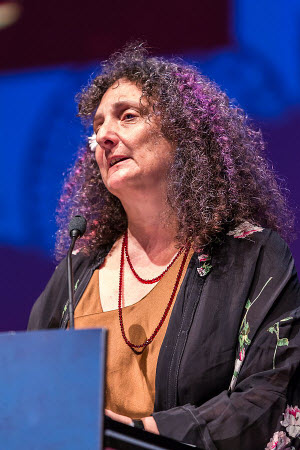
 Jeanette Winterson’s latest book is a pastiche on Frankenstein, and also very much a science fiction novel. Even if it didn’t have a trans main character, it would deserve a review here. Given that additional fact, I really can’t ignore it.
Jeanette Winterson’s latest book is a pastiche on Frankenstein, and also very much a science fiction novel. Even if it didn’t have a trans main character, it would deserve a review here. Given that additional fact, I really can’t ignore it.
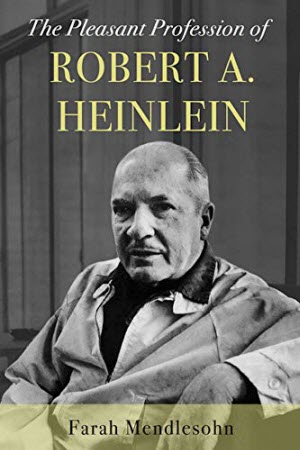 In my time I have read rather a lot of academic studies of science fiction, but I don’t think I have read anything that comes close in depth and breadth of analysis as Farah Mendlesohn’s study of Heinlein. I’m by no means an expert on Heinlein myself, but I am seriously impressed with how exhaustive this book is. That does of course make it rather exhausting as well. It is very long, and I can see why Mendlesohn opted for crowdfunded publication rather than cut it down substantially as had been requested by the original publishers. Heinlein had a long career, had a huge influence on the field, and was a very complex person. You need a book like this to do him justice.
In my time I have read rather a lot of academic studies of science fiction, but I don’t think I have read anything that comes close in depth and breadth of analysis as Farah Mendlesohn’s study of Heinlein. I’m by no means an expert on Heinlein myself, but I am seriously impressed with how exhaustive this book is. That does of course make it rather exhausting as well. It is very long, and I can see why Mendlesohn opted for crowdfunded publication rather than cut it down substantially as had been requested by the original publishers. Heinlein had a long career, had a huge influence on the field, and was a very complex person. You need a book like this to do him justice.
 I think I first met Kate Heartfield at the Montréal Worldcon in 2009, but we’d been corresponding before that. She was still working as a journalist and I was delighted to find someone of that ilk who was both a feminist and interested in science fiction. Since then she has become a published author. Her novel, Armed in Her Fashion, was one of the most imaginative and daring fantasy debuts I have seen in a long time. It is set in a version of mediaeval Europe that could come right out of the mind of Hieronymous Bosch, and it features an excellent portrayal of a mediaeval trans man. I am delighted to see that it won the 2019 Prix Aurora for the best SF&F novel from Canada.
I think I first met Kate Heartfield at the Montréal Worldcon in 2009, but we’d been corresponding before that. She was still working as a journalist and I was delighted to find someone of that ilk who was both a feminist and interested in science fiction. Since then she has become a published author. Her novel, Armed in Her Fashion, was one of the most imaginative and daring fantasy debuts I have seen in a long time. It is set in a version of mediaeval Europe that could come right out of the mind of Hieronymous Bosch, and it features an excellent portrayal of a mediaeval trans man. I am delighted to see that it won the 2019 Prix Aurora for the best SF&F novel from Canada.
 Those of you who follow such developments closely will know that Juliet E. McKenna now has an alter-ego, a seemingly genderless person known as JM Alvey who writes murder mysteries set in Ancient Greece. Juliet has written a bit
Those of you who follow such developments closely will know that Juliet E. McKenna now has an alter-ego, a seemingly genderless person known as JM Alvey who writes murder mysteries set in Ancient Greece. Juliet has written a bit 
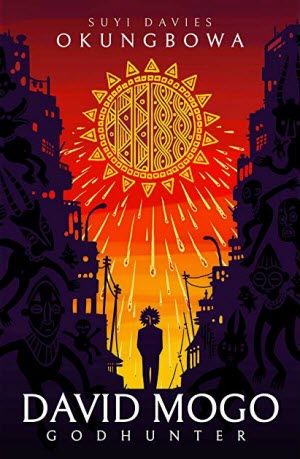 We are in Lagos in the near future, and the gods have fallen to Earth.
We are in Lagos in the near future, and the gods have fallen to Earth.
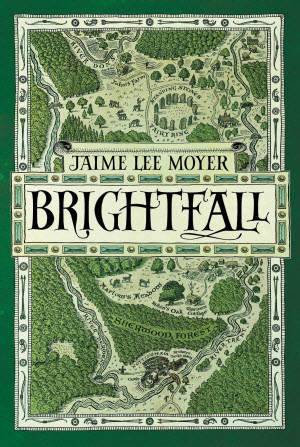 By the end of the first chapter I was totally hooked on this book and knew that I would whiz through it is a day or two. And I did. However, by the time I got to the end I had, not exactly fallen out of love with it, but rather ceased to love it quite as much as I did initially. Explaining why will require this review to be slightly more spoilerly that what I would normally write. You have been warned.
By the end of the first chapter I was totally hooked on this book and knew that I would whiz through it is a day or two. And I did. However, by the time I got to the end I had, not exactly fallen out of love with it, but rather ceased to love it quite as much as I did initially. Explaining why will require this review to be slightly more spoilerly that what I would normally write. You have been warned.
 October is a busy time for conventions. There’s Octocon in Dublin, FantasyCon, BristolCon and World Fantasy to contend with. But that’s not all. Publishers will be off to Frankfurt for the book fair, and with FantasyCon in Scotland many English and Welsh fans chose instead to head for GollanczFest in London. There’s also the MGM ComicCon at the Excel in London which is now drawing high profile authors away from Bristol. It’s great that the scene is so vibrant, but we aren’t at a con a week yet so it would be nice to have less actual competition.
October is a busy time for conventions. There’s Octocon in Dublin, FantasyCon, BristolCon and World Fantasy to contend with. But that’s not all. Publishers will be off to Frankfurt for the book fair, and with FantasyCon in Scotland many English and Welsh fans chose instead to head for GollanczFest in London. There’s also the MGM ComicCon at the Excel in London which is now drawing high profile authors away from Bristol. It’s great that the scene is so vibrant, but we aren’t at a con a week yet so it would be nice to have less actual competition.
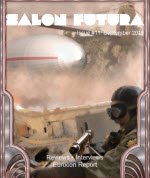 Here we are with our second issue of the year. This is what you can find in it.
Here we are with our second issue of the year. This is what you can find in it. Gideon the Ninth
Gideon the Ninth Tracking Classical Monsters
Tracking Classical Monsters The House of Sundering Flames
The House of Sundering Flames Eurocon in Belfast
Eurocon in Belfast Dragon Pearl
Dragon Pearl Interview – Heather Child
Interview – Heather Child The Heart of the Circle
The Heart of the Circle About Writing
About Writing Interview – Anne Corlett
Interview – Anne Corlett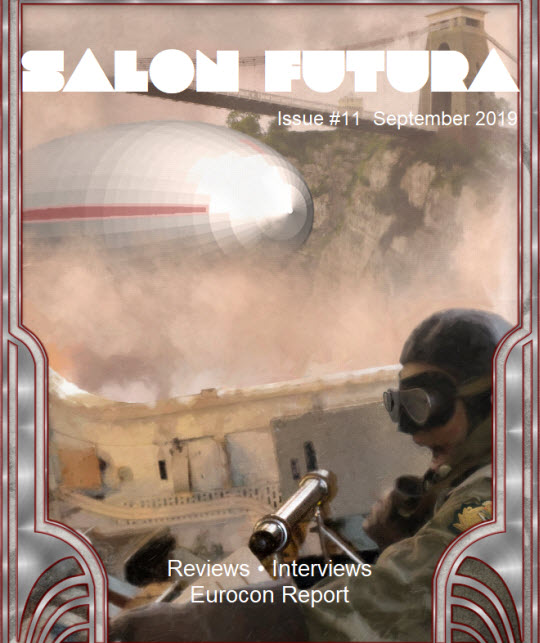
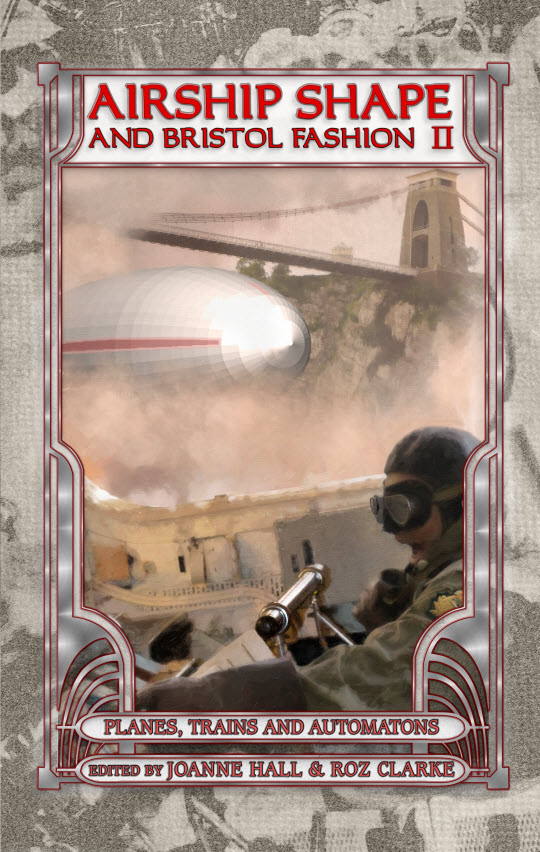
 You have probably heard of this book. It is, undoubtedly, the most talked about book of the year. Indeed, it is the most talked about debut novel that I can remember. Admittedly they didn’t have social media marketing campaigns back when Neuromancer came out, or Perdido Street Station (which I know wasn’t a debut, but King Rat was barely noticed). But even Ancillary Justice didn’t get this level of promotion.
You have probably heard of this book. It is, undoubtedly, the most talked about book of the year. Indeed, it is the most talked about debut novel that I can remember. Admittedly they didn’t have social media marketing campaigns back when Neuromancer came out, or Perdido Street Station (which I know wasn’t a debut, but King Rat was barely noticed). But even Ancillary Justice didn’t get this level of promotion.
 I know Liz Gloyn through the Women’s Classical Committee, a support group for women who study the Classics, of which I am a member. Before I actually met her in person, however, I saw her on a documentary series called
I know Liz Gloyn through the Women’s Classical Committee, a support group for women who study the Classics, of which I am a member. Before I actually met her in person, however, I saw her on a documentary series called 
 The House of Sundering Flames is the third and final part of Aliette de Bodard’s Dominion of the Fallen series. The books tell the tale of life in a post-apocalyptic Paris in which fallen angels have returned to Earth and set up their own mini-kingdoms in the city. Book 1, The House of Shattered Wings, tells of House Silverspires, ruled over by Morningstar himself and headquartered in Notre Dame (where else?). But old Lucifer is not the power that he once was, nor do his schemes and dreams have much currency in this strange new world. Book 2, The House of Binding Thorns, takes us to House Hawthorn, centred around the Eiffel Tower and ruled over by the seemingly sadistic Asmodeus. But the old demon proves more adaptable than his former master, ending up sharing his rule with Thaun, a young dragon prince from a kingdom under the Seine.
The House of Sundering Flames is the third and final part of Aliette de Bodard’s Dominion of the Fallen series. The books tell the tale of life in a post-apocalyptic Paris in which fallen angels have returned to Earth and set up their own mini-kingdoms in the city. Book 1, The House of Shattered Wings, tells of House Silverspires, ruled over by Morningstar himself and headquartered in Notre Dame (where else?). But old Lucifer is not the power that he once was, nor do his schemes and dreams have much currency in this strange new world. Book 2, The House of Binding Thorns, takes us to House Hawthorn, centred around the Eiffel Tower and ruled over by the seemingly sadistic Asmodeus. But the old demon proves more adaptable than his former master, ending up sharing his rule with Thaun, a young dragon prince from a kingdom under the Seine.
 Titancon was a convention that probably shouldn’t have worked, but actually did very well.
Titancon was a convention that probably shouldn’t have worked, but actually did very well.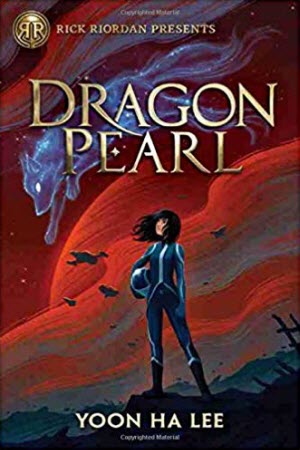 The latest novel by Yoon Ha Lee is part of the Rick Riordan Presents series and comes under a Disney imprint. Dragon Pearl is what is generally called a Middle Grade novel, aimed at younger teenagers. It is a child’s adventure rather than a coming of age narrative, and there’s no teenage romance drama. That’s quite a change from the clever and sophisticated military SF of the Machineries of Empire series. Yoon, however, is very much up for the challenge.
The latest novel by Yoon Ha Lee is part of the Rick Riordan Presents series and comes under a Disney imprint. Dragon Pearl is what is generally called a Middle Grade novel, aimed at younger teenagers. It is a child’s adventure rather than a coming of age narrative, and there’s no teenage romance drama. That’s quite a change from the clever and sophisticated military SF of the Machineries of Empire series. Yoon, however, is very much up for the challenge.
 When I was looking for new people to meet at Worldcon, my Israeli friends were adamant that I should make the acquaintance of Keren Landsman. She has a novel out in translation from Angry Robot, and it has queer content, so it was a no-brainer for me. I’m pleased to say that it was also an excellent decision. Keren was clearly the life and soul of the Israeli delegation in Dublin. I warmed to her immediately. But I still had to read the book. Here are some thoughts.
When I was looking for new people to meet at Worldcon, my Israeli friends were adamant that I should make the acquaintance of Keren Landsman. She has a novel out in translation from Angry Robot, and it has queer content, so it was a no-brainer for me. I’m pleased to say that it was also an excellent decision. Keren was clearly the life and soul of the Israeli delegation in Dublin. I warmed to her immediately. But I still had to read the book. Here are some thoughts.
 Confession time: I haven’t read many writing guides. For someone who does as much writing as I do, you would have thought that I might have tried to improve my craft, right? But I am generally allergic to self-help books, and I have the distinct impression that more people are making money from teaching writing than are making money from writing. I mean, teaching writing is a job. Being a writer is something that people tend to do in their spare time.
Confession time: I haven’t read many writing guides. For someone who does as much writing as I do, you would have thought that I might have tried to improve my craft, right? But I am generally allergic to self-help books, and I have the distinct impression that more people are making money from teaching writing than are making money from writing. I mean, teaching writing is a job. Being a writer is something that people tend to do in their spare time.

 Well, we’re back, sort of. Welcome to Salon Futura, the fanzine. There is a full explanation in the editorial. In the meantime, here is the contents list.
Well, we’re back, sort of. Welcome to Salon Futura, the fanzine. There is a full explanation in the editorial. In the meantime, here is the contents list. Worldcon #77 in Dublin
Worldcon #77 in Dublin The Calculating Stars
The Calculating Stars Gods of Jade and Shadow
Gods of Jade and Shadow Interview – Regina Wang
Interview – Regina Wang Finncon 2019
Finncon 2019 Interview – Farah Mendlesohn & Cathy Butler
Interview – Farah Mendlesohn & Cathy Butler



 I read this one as part of my Hugo voting research (unusually I had read 4 of the 6 finalists before the ballot was announced, which I think makes this a Very Good Year). However, I held off reviewing it until voting closed because it seemed unfair to do just one, and because I have a particular take on the book.
I read this one as part of my Hugo voting research (unusually I had read 4 of the 6 finalists before the ballot was announced, which I think makes this a Very Good Year). However, I held off reviewing it until voting closed because it seemed unfair to do just one, and because I have a particular take on the book.


 One of the hardest things for a new writer to do is carve a niche for herself. There’s nothing new under the sun, right? How do you mark yourself out as someone different and interesting? Heather Child is, I think, making a good job of this by writing character-driven science fiction that is very much about how we live now.
One of the hardest things for a new writer to do is carve a niche for herself. There’s nothing new under the sun, right? How do you mark yourself out as someone different and interesting? Heather Child is, I think, making a good job of this by writing character-driven science fiction that is very much about how we live now.